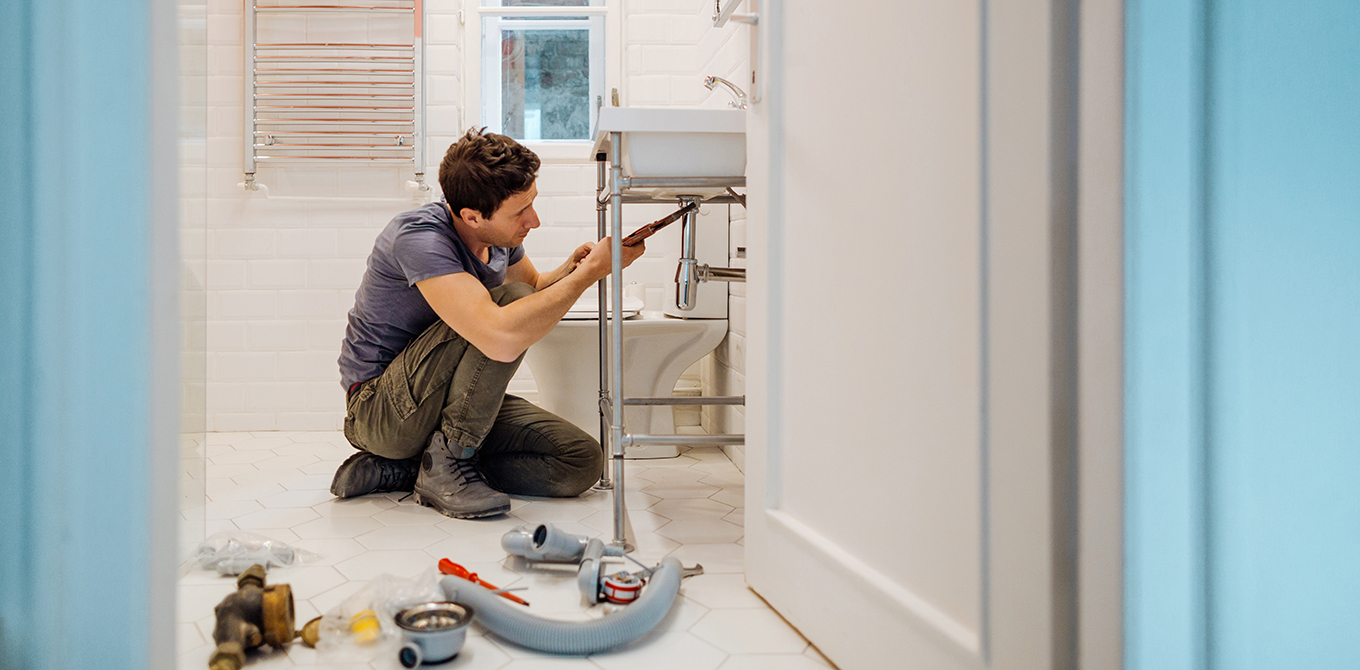Seasonal home maintenance checklist
You've worked hard to buy your own home. That's why it's important to protect your investment by scheduling updates, repairs, and cleaning. Use this seasonal checklist to keep your home in top shape inside and out.
Winter
Winter can be very harsh on your home. To help prevent problems, be sure to check these winter items off your seasonable checklist:
◻ Give your heating system a tune up. Have a technician inspect your furnace or heat pump to make sure the system is clean and can achieve its manufacturer-rated efficiency.
◻ Wrap insulation around outdoor faucets and pipes in unheated garages. Winterize your outside faucets (spigots) with insulated covers to help prevent frozen or burst pipes.
◻ Cover your air conditioning unit. While most units are built to hold up in winter weather, it's a good idea to cover your unit when the forecast calls for wintery weather.
◻ Reverse your ceiling fans. If your ceiling fan has a reverse switch, use it to run the fan's blades in a clockwise direction after you turn on the heat. The fan will produce an updraft and push the heated air down into the room.
◻ Check basement for leaks during thaws. When a large snowfall begins to melt, check your basement for leaks and cracks so you can prevent extensive damage. On average, an inch of melting snow produces 2700 gallons of water per acre, so even a minor snow melt can deposit thousands of gallons of water around your foundation.
Spring
In addition to cleaning out the garage, vacuuming rugs, and washing windows—add these home maintenance tips to your spring cleaning regimen.
◻ Perform routine home safety checks.
◻ Change the batteries in smoke and carbon monoxide detectors.
◻ Make sure fire extinguishers are still intact with the needle in the green zone.
◻ Check and clean the dryer filter and tubing that leads outside.
◻ Clean gutters and downspouts. When the last snowfall or frost is over, make sure your gutters and downspouts are cleaned and repaired. Clogged gutters can cause damage to wood trim and attics which could leave your home vulnerable to unwelcome guests like squirrels and rodents.
◻ Change the air-conditioning filter. Dirt and neglect are one of the leading causes of cooling system problems. Changing the air filter in your system ensures cleaner, healthier air and can help prevent clogs which can save you money on operating costs.
◻ Check and repair outside woodwork. Look for signs of water damage, discoloration, warping, and decay then reseal or repaint if needed. After a long winter, woodwork like decks, railings, and fences will need attention.
◻ Upgrade appliances. Appliances account for about 15% of your household's energy consumption, with refrigerators, washers, and dryers at the top of the list. If it's time for an upgrade, consider energy-efficient options which could lower your bills.
Summer
Once summer's here, take advantage of sunshine and long hours to get your home and yard in top shape.
◻ Inspect your chimney/fireplace. Summer is the perfect time to have your chimney inspected and professionally cleaned. Cleaning of a wood fireplace can prevent the building up of creosote (fuel that has not fully burned), which is the primary cause of chimney fire.
◻ Remove seedlings and small trees growing near foundation and in sidewalks. The roots of a trees can cause foundations to crack and driveways to lift up. Also, protect your home’s exterior by removing vines clinging to the sides of your house.
◻ Inspect roof and replace missing, loose, or damaged shingles. High winds, heavy rain, and other weather events can damage roofs and cause leaks and structural problems. A yearly inspection can help you avoid turning a small repair into a major one.
◻ Check and repair steps, sidewalks, and railings. Look for cracks or uneven sidewalks, mold or deterioration in wooden steps or railings, and rust in metal fixtures. Over time, erosion due to weather, settling of your house, and everyday use can cause significant damage and create safety issues for your home.
◻ Check grading (dirt) for proper slope away from foundation walls. If grading isn’t done properly, runoff water can compromise your foundation and cause leaky basements. Grading should be approximately 6 inches for the first 10 feet.
Fall
Fall is a great time to take care of home repair projects before shorter days and colder weather.
◻ Switch out summer screens to cool-weather storm windows and doors. This will make your home more energy efficient and add an extra measure of protection against winter weather.
◻ Perform routine home safety checks:
◻ Make sure fire extinguishers are still intact with the needle in the green zone.
◻ Check and clean the dryer filter and tubing that leads outside. Buildup of lint in tubing and exterior vent can cause fires and reduce the efficiency of your dryer.
◻ Fertilize and reseed your lawn. While grass appears to stop growing, the roots are actually growing deeper, so it’s the ideal time to prepare your lawn for spring.
◻ Trim any tree limbs that are close to power lines or the roof of your house. Accumulated snow and ice can damage your home or yard and can cause power outages.
◻ Patch worn sections of the driveway and coat with sealer. Constant freeze-thaw cycles and the vehicles moving over your driveway every day can create cracks or divots. Patching and sealing your driveway can help prevent expensive replacement costs down the road.




